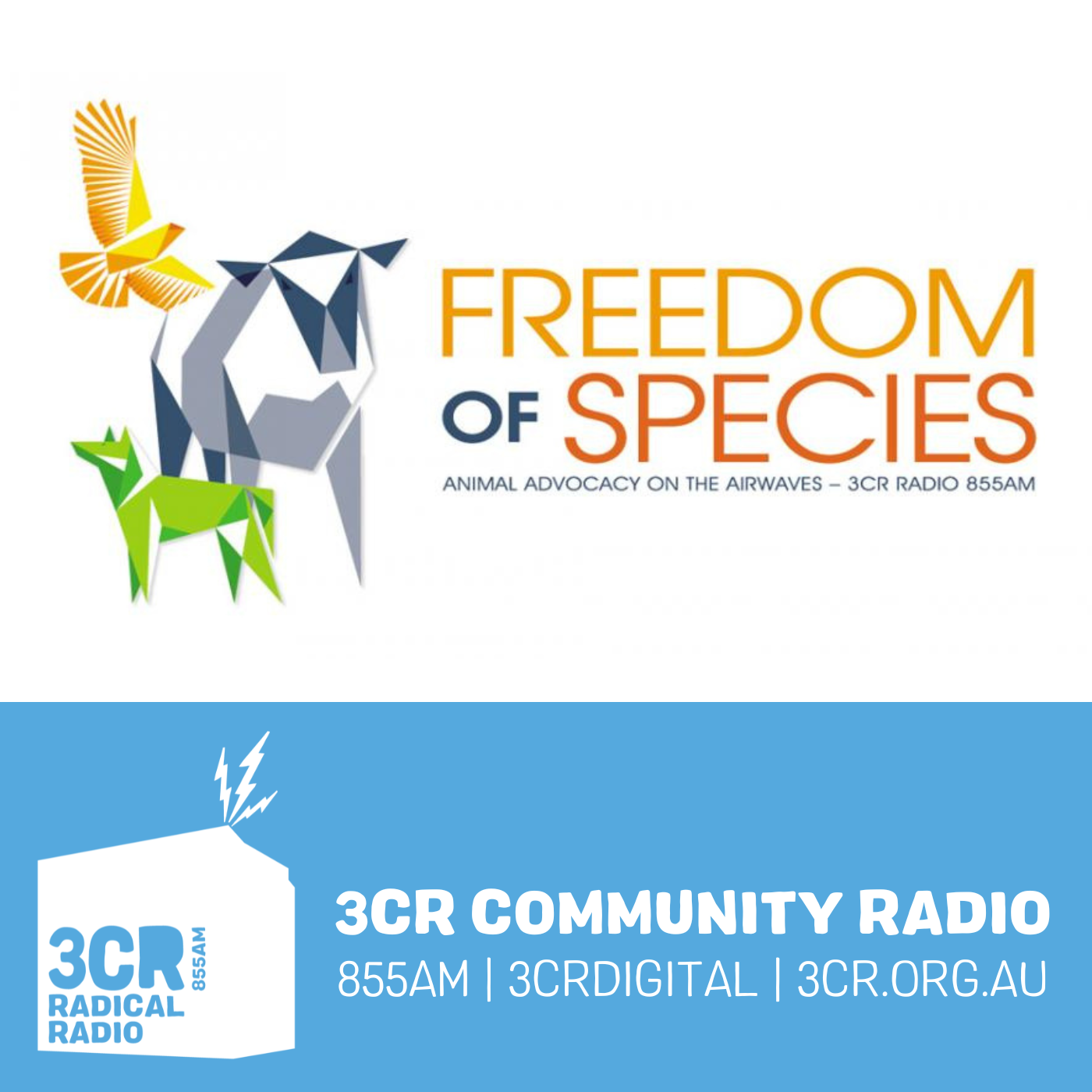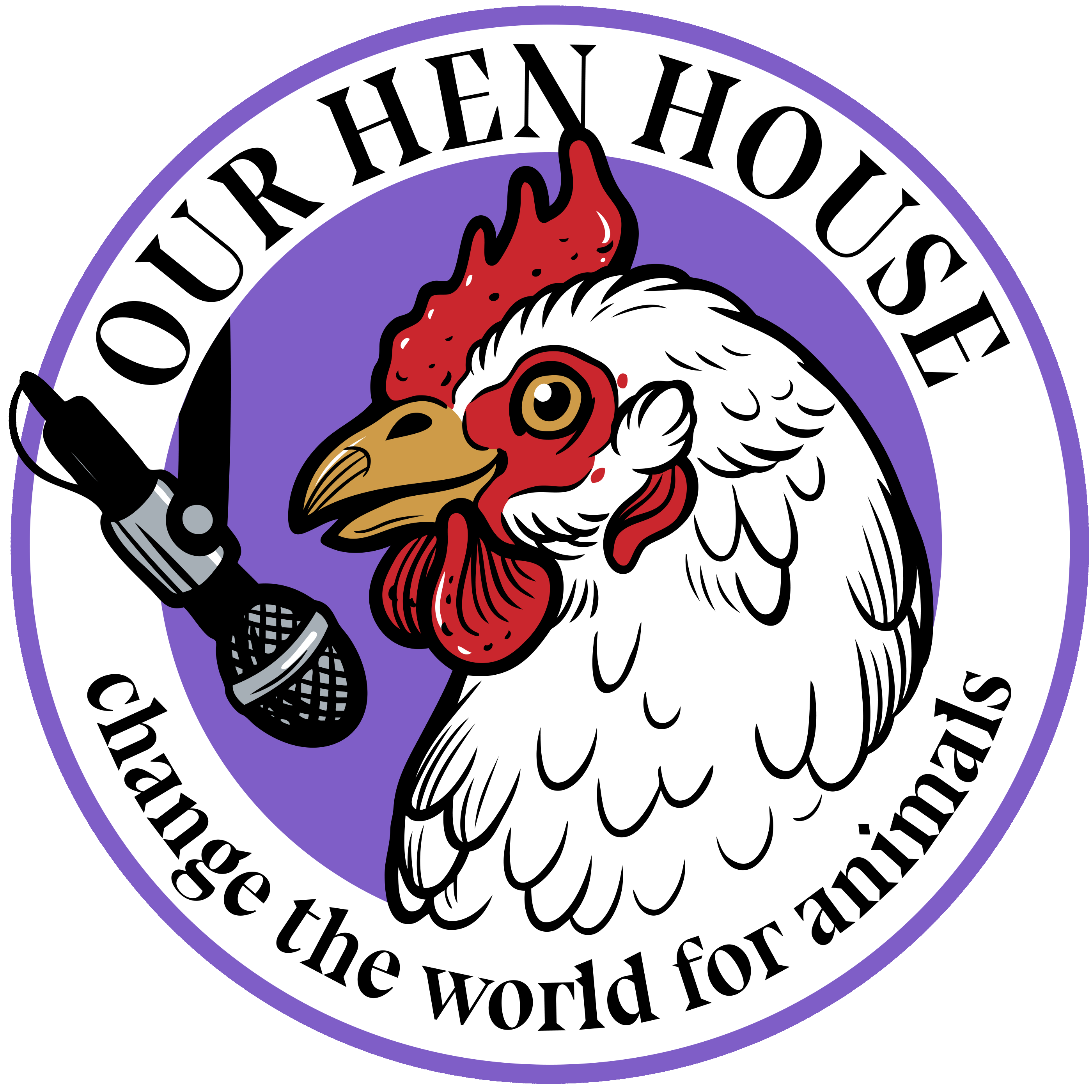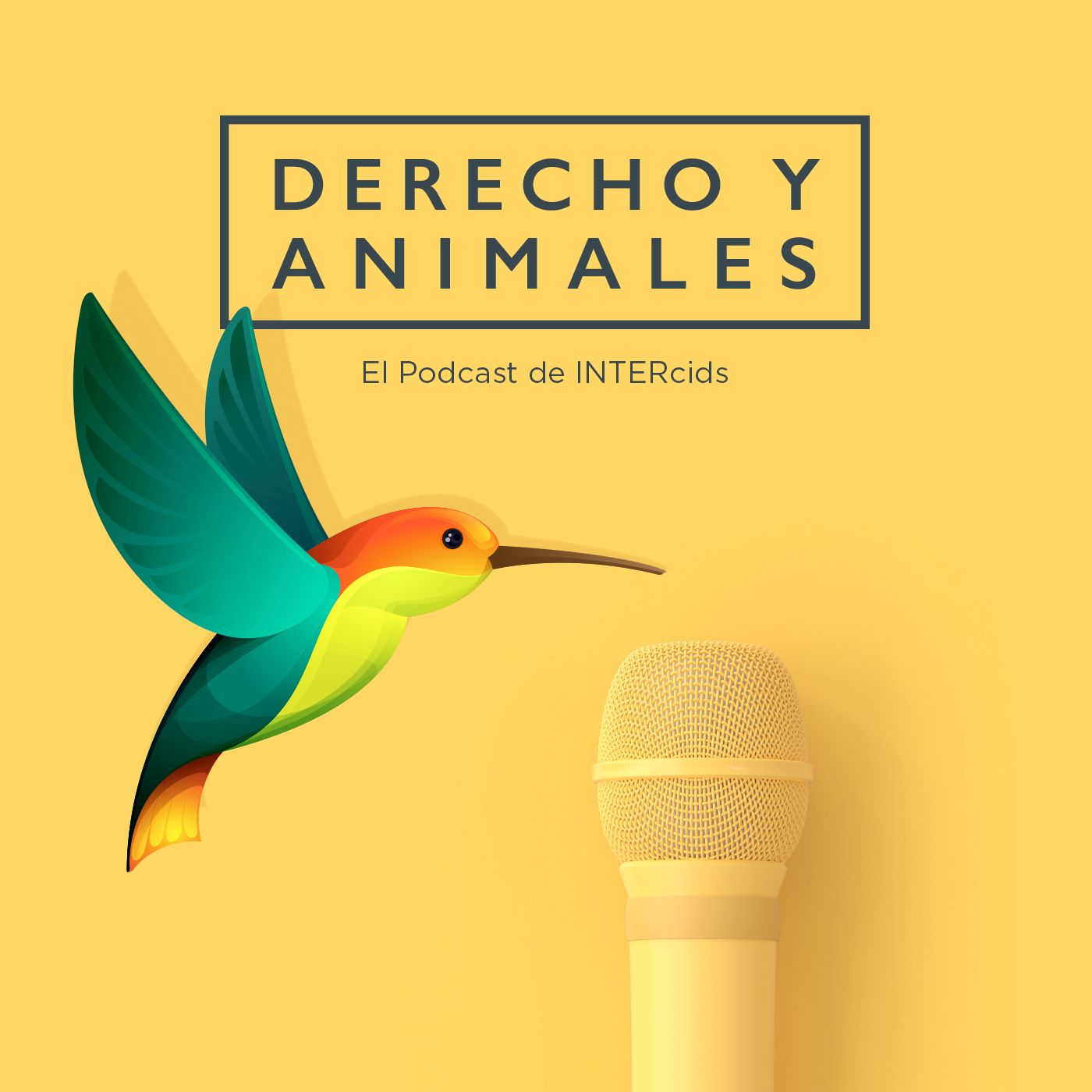
The Animal Turn
Animals are increasingly at the forefront of research questions – Not as shadows to human stories, or as beings we want to understand biologically, or for purely our benefit – but as beings who have histories, stories, and geographies of their own. Each season is set around themes with each episode unpacking a particular animal turn concept and its significance therein. Join Claudia Hirtenfelder as she delves into some of the most important ideas emerging out of this recent turn in scholarship, thinking, and being.
The Animal Turn
S5E6: Animal Farm Activism with Camille Labchuk
Claudia talks to Camille Labchuk about the two recent legal cases at Smithfield and Excelsior which involved animal activism on pig farms in North America. They discuss how biosecurity is used as a means of creating ag-gag laws, the relative absence of biosecurity considerations in the cases, and the legal exceptionalism animal farms enjoy in Canada.
Date Recorded: 27 October 2022
Camille Labchuk is an animal rights lawyer and executive director of Animal Justice—Canada’s only animal law advocacy organization. Under her leadership, Animal Justice fights legal cases in courtrooms across the country, works to pass ground-breaking new laws, and ensures industries are held accountable for illegal animal cruelty. Camille has litigated to advance animals’ legal interests at all levels of court, including before the Supreme Court of Canada. She regularly testifies before legislative committees, and was instrumental in passing Canada’s precedent-setting national ban on whale and dolphin captivity. She has brought constitutional cases seeking to protect the interests of animals and animal advocates; filed false advertising complaints against companies making misleading humane claims; documented Canada’s commercial seal slaughter; and exposed hidden suffering behind the closed doors of farms and zoos through undercover exposés. Camille was previously a founding board member of Mercy For Animals Canada, press secretary to the leader of a federal Canadian political party, and is a former two-time candidate for Parliament. Camille is a frequent lecturer on animal law, co-host of the Paw & Order podcast, and a regular contributor to national publications like the Globe and Mail and the Toronto Star. She is a Fellow at the Oxford Centre for Animal Ethics. Connect with Camille on Twitter (@CamilleLabchuk)
Featured: Animal Advocacy or Animal Agriculture? Disease Outbreaks and Biosecurity Failures on Canadian Farms by Animal Justice
Animal Highlight: Lily and Lizzy
In this highlight, Amanda focuses on the two pigs who were at the center of the Smithfield case, Lily and Lizzy. She talks about pigs’ incredible social worlds, the conditions Li
A.P.P.L.EAnimals in Politics, Law, and Ethics researches how we live in interspecies societies and polities.
Biosecurities Research Collective
The Biosecurities and Urban Governance Research brings together scholars interested in biosecurity.
iROAR Network
iROAR brings together podcasts that aim is to make the world a better place for animals.
Disclaimer: This post contains affiliate links. If you make a purchase, I may receive a commission at no extra cost to you.
The Animal Turn is hosted and produced by Claudia Hirtenfelder and is part of the iROAR Network. Learn more on our website.
- Leave a Review on Podchaser
- Check out The Animal Turn Merch.
- Support us on Patreon, Buy Me a Coffee, and Buzzsprout.
00:00 - Introduction
- Go check out some of our earlier seasons
03:42 – Welcome and a bit about you
- Camille is super impressive and has done a great in the legal realm for animals in Canada
- Vegetarian when she was 12 and saw images of the commercial seal kill when she was older. This exposed her to animal rights advocacy as a career path
- Law important in advocacy
- Became part of Animal Justice after law school and it started out really small
- First season was on Animals and the Law
- Interview with Lesli Bisgould
08:39 – Animal Justice
- Work done at Animal Justice – a national animal law, advocacy organisation. Focus on farmed animals (over 800 million land animals slaughtered in the country) but also companion, wild, and lab animal issues
- “Canada has some of the worst animal protection laws in the western world,” Camille
- Leave it to industries to create their won private standards so Animal Justice tries to encourage the actual adoption of laws
- In 2019, ground breaking law banning the keeping of whales and dolphins
- Encourage law enforcement, even when there are laws they are not enforced.
- Undercover exposes at farms and zoos
- Take cases to try and advance the law – took a recent case about bestiality (issue about how the offence to be interpreted which can drive the law forward)
- The legal system needs opportunities to think about animals and how it is of much broader societal importance
13:59 – Two legal cases involving pigs
- One case in the U.S. where activists were acquitted by the courts and another in Canada where they were charged
- Smithfield trial was broadcast and it was a jury trial. It was a question of whether the activists had actually taken anything of value. They took two sick pigs who were going to die, their market value would have been $42.40 each if they had been healthy – so astounding overreach by the government. Pigs might have had negative value because the pigs likely had a virus
- Four folks were initially prosecuted in the Excelsior case, and they weren’t accused of taking any pigs but of being on the farm. Went on a farm to expose suffering. Cruelty included pigs with wounds and piglets being cannibalised, electric prods. Asked for whistleblower protection but identity given to police and investigation made into who shot the footage, not the anima cruelty. Led to a mass demonstration. Judge refused to allow them to show any footage from the farm. Two people were convicted for break and entry and mischief (“interfering with the lawful use and enjoyment of property”). Sets a precedent for how the law might respond to non-violence civil disobedience. There is an appeal of the conviction and the sentence.
- No evidence of allegation of biosecurity threats
23:14 – Use of evidence and property
- Interesting how evidence was used in these cases.
- Evidence is normally excluded if it impacts the accused to a fair trial but in this case, it was excluded to protect the fairness of the prosecution
- Much bigger push back from governments and industry against activists
- “It seems like another key mechanism is the idea of property,” Claudia
- Animals are constituted as property in the law and it is used as a mechanism to prevent people from seeing how food is made
- Property is also used to target activists and call them extremist
25:49 – Is it significant that biosecurity did not come up?
- Biosecurity is a key justification for Ag-gag laws in Canada and the U.S.
- No evidence of a breach by animal activists.
- Animal Justice prepared a report on biosecurity
- Lots of disease outbreaks on farms and a lot of it has to do with farmers themselves breaching the law
- “Biosecurity is purely being used as a pretense just to crack down and to protect and private property rights,” Camille
28:08 – Biosecurity and Trespass Offences
- Animal rights activism has an important role to play in protecting animals from pathogens
- Whistleblowing is important
- Canada doesn’t have federal biosecurity prescriptive standards
- Industry and self-imposed biosecurity standards
- Federal Health of Animals Act, if you are unlawfully on a property and you do something that “could” introduce a disease risk you could be guilty of a federal offence.
- Dangerous standard and could lead to people being convicted for actions that have not been harmul
- Concerns about over-reach
- Could see how these laws could also be used against farm workers
- Farmers don’t want legislation that positions them as breaking biosecurity laws
33:56 – What are Ag-gag laws?
- Any law designed to reduce transparency and hide information on farms
- First ones passed in the U.S. and driven by the rise of under-cover exposes
- Try to shit down information so that profits aren’t lost
- Animal Legal Defence Fund and Peta have challenged these in court. They have been struck down in several states in the U.S.
- Started to be passed in Canada after demonstrations on farms, stopped people getting jobs under-cover
- Shuts down advocacy groups
- Australia also have Ag-Gag laws
- Animal Justice suing in Ontario to strike down the Ag-gag law
- Rare for people to trespass on farms in Canada, people in industry often talking about trespass but it rarely has to do with activists.
- Different provinces have different focuses – Ontario focused on farms where animals are kept, Alberta’s law is expansive and affects any private property (including places like nursing homes). This reduces transparency
- Property and profit are the key things to protect
- Investigate journalism is being curtailed and people want to know where they get their food from.
- Private property has “cut these places off from us in way that is quite profound,” Claudia
- Property rights are being used to hide information from the public
- Aren’t even inspections because there are no regulations requiring it.
41:56 – Agricultural Exceptionalism
- No laws so no point in inspecting farms and it is not clear to what extent welfare laws apply to farms because they are generally exempt – “Agricultural exceptionalism,” Camille
- Farming industry is very powerful in Canada – The Dairy Industry are fearsome lobbyists
- Dairy industry has been compared to the gun lobby in the U.S. They had a marketing budget of 80 million dollars in 2018
- Easy to sound conspiratorial
- Dairy industry game - https://dairyfarmersofcanada.ca/en/tomorrow/minigames
- Compassionate people don’t want animals to be abused, 87% people want to see federal regulations on farms
- But massive industries with unlimited budgets to get favourable laws in place
- “Truth is the best disinfectant,” and the industry knows that which is why they respond so much
- “The Barbara Streisand effect,” owned a massive mansion but by trying to conceal it everyone spoke about it
- When industries try to hide information, “we have an enhanced obligation” to keep doing what we are doing
- “I think that repression is a tool,” Camille
- We need to expose what industry is trying to hide, people don’t like to be deceived
- We need to use every avenue to let people know what is happening
50:56 – Quote (Nicholas Klein)
- “First, they ignore you. Then they laugh at you. Then they fight you. And then you win,” incorrectly attributed to Ghandi
- “First, they ignore you. Then they ridicule you. Then they attack you and want to burn you. And then they build monuments to you,” Nicholas Klein, a trade union activist
- Whoever said it, the idea behind it shows the phases of social change
- Pioneers in animal law know what it is like to be laughed out of court when they brought cases, now they are fighting us because “it is an idea whose time has come”. Animal activists are winning in court.
- What kind of world do we want in future and how can we contribute to that
53:35 – What are you currently working on?
- Animaljustice.ca
- Facebook, Instagram, and TikTok
- Federal legislative initiatives – a bill to ban the captivity of about 800 animals
- A bill to phase out toxicity tests on animals in Canada
- Suing to overturn Ag-gag laws in Ontario
- Suing the Canadian government for importing rescue dogs
- Province of BC ban mink farming because of threat of COVID, being challenged in court
Animal Highlight – Lily and Lizzy
- Pigs and biosecurity concerns
- The pigs from the Smithfield Trial are Lilly and Lizzy
- Pigs confined to terrible conditions
- Lilly and Lizzy were very unwell, both had infections
- Different to the environments that fulfil pigs needs, Lyall Watson describes pigs as Gregarious
- Marino and Calvin, scientific literature on pigs
- Lilly and Lizzy survived their ordeals, at Luvin Arms Animal Sanctuary in Colorado and are now free from harm and exploitation and live rich lives
- Lilly is shy and loves belly rubs, Lizzy is more outgoing and enjoys rolling in the mud. They are good friends
- The facility they were rescued from slaughter roughly 1 million pigs a year
- Pigs playing video games
Podcasts we love
Check out these other fine podcasts recommended by us, not an algorithm.

The Animal Highlight
Claudia Hirtenfelder
Knowing Animals
Josh Milburn
Species Unite
Species Unite
The Deal With Animals with Marika S. Bell
Marika S. Bell
The Other Animals
Laurent Levy
Beyond Species
Beyond Species
The Anthrozoology Podcast
Anthrozoology Podcast
Freedom of Species
The Freedom of Species Team
Our Hen House: Vegan & Animal Rights Movement | Stories from the Frontlines of Animal Liberation
Jasmin Singer and Mariann Sullivan
Derecho y Animales
Derecho y Animales
Storytelling Animals
Dayton Martindale
Species
mackenmurphy.org
Animal Law Matters
K & R Animal Law
The Humanimal Connection
Humanimal Trust
The Animal That Changed You
Katya Lidsky
Think Like a Vegan
Emilia Leese
The Shifting Lens: Viewing the Animal Experience
Tiamat Warda Rebecca Madrid
The Salmon People
Canada's National Observer
Comme un poisson dans l'eau
Victor Duran-Le Peuch
.png)
.png)


